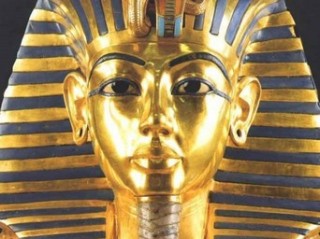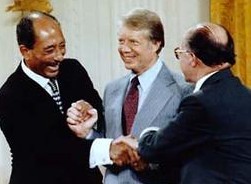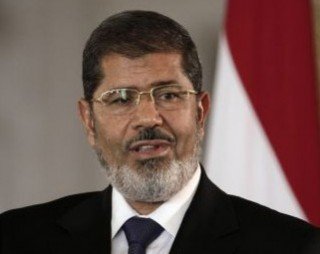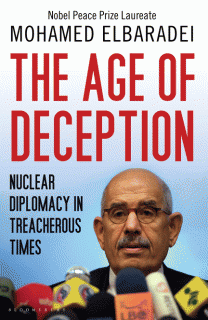Will Egypt’s revolution be stolen again?
Note: It is always a pleasure to be able to look back with 20/20 vision on what has occurred. But today I take you back to this July 8th article to measure the analysis after two weeks. One of the things missed was predicting the militant attacks in the Sinai, but looking back on it that was logical as the Camp David Agreement prohibited the Egyptian army moving more troops in without Israeli permission.
… by Jim W. Dean, VT Editor … with Press TV
– First published on Press TV on July 8th, 2013 –

Much of the Egypt analysis coming in so far is biased by whatever side the writers happen to be supporting and of little value to us as we have been aware of the ideological disputes.
What we need to be looking at now is who internally in Egypt is responsible for what has happened, where certainly one of the options is both sides, and then have certain foreign players played a key role or distant one.
There is the usual ‘the US is running the whole show’ side. This of course is somewhat validated by the annual support to the Egyptian military. But we must not forget that this was the military, despite America’s standing with Mubarak until almost the end, that went over to the people when they saw he was toast. By siding with the people they saved their own domestic respect, credibility, and privileges.
Michel Chossudovsky poses that the US is manipulating both sides and uses a military.com quote to support the claim:
“US Defense Secretary Hagel and US Chief of Staff General Martin Dempsey were walking a fine line expressing concern while attempting to avoid the impression that the US was manipulating events behind the scene.”
But an obvious omission here by Chossudovsky is that the US military does not make policy, and peep to peer communications in all situations of turbulence are quite normal. To cast them undoubtedly as evidence of control and manipulation is a stretch. The Army obviously made the call as it was their behinds on the line if Tahrir Two turns into a debacle.
Kevin Barrett also feels that the Morsi overthrow was a US covert coup, detailing a long history of the tactic being used. Constant involvement in other countries affairs always exposes you to blame for anything that happens there that no one likes.
You end up with ‘anti-American’ feelings (or more of them) which could have been avoided simply by keeping a distance. Our Founding Fathers warned us about this but America has lost its way in this regard.
Edward Peck, former US ambassador to Iraq, and with top sources in Washington. weighed in on the opposite side. “I think that the government of the United States is a little bit confused about what to do… I think anyone who believes that the U.S. or any other country can direct the events in Egypt is badly mistaken.”

I will now jump in here with the caveat that I have no crystal ball but will try to add some dispassionate analysis and some new input from other sources.
Foreign Minister Hague recently said, that Britain planned to work with the interim government “as a practical matter” as many British citizens and businesses are in Egypt and international life must go on during these political turmoils.
The same goes for the US. We obviously were working with the Morsi government and it should come as no surprise that holding fast to the Camp David Accords would be a top priority. It would be naive to think otherwise.
American support for Israel is not going to disappear overnight based on what happens in another country, but only after a long hard fight back here at home where we clean out of the Lobby infiltrators, subversives and their fellow travelers.
The world has watched the continuing political/religious struggle inside Egypt for a variety of reasons as Tahrir One was an historic event. The Muslim Brotherhood came in on the tail end of that. The young people had initiated and carried the revolution on their own shoulders through the most difficult and dangerous period, with the Army finally joining in to tip the tide.
![2012-634617905700619164-61[1]](https://www.veteranstodayarchives.com/wp-content/uploads/2013/07/2012-634617905700619164-611-320x191.jpg)
So the MB had no problem with the people and the army teaming up to remove a democratically elected government when it paved the way for their possibly realizing their dream of running Egypt as an Islamic state.
The current showdown began in earnest with the second year anniversary of the 2011 revolution in late January.
Morsi had already burned bridges with the opposition with his decree that none of his presidential edicts could be reversed by the courts, which earned him the nickname the “New Pharaoh.” The opposition became more outspoken and called for removal of the ‘dictatorship’ and trials of its top figures, which we might still see.
Tensions flared with the famous Salafi cleric Mahmoud Shaaban being arrested for inciting violence against NSF leaders when he said on February 2nd that for their [NSF] wanting to get rid of the Morsi government that “it was clear that their sentence in God’s law was death.” That was waving a red flag in front of the army.
The Army stood by, not interfering. But it did attempt to cool things down with Army Chief of Staff Sedki Sobhi’s warning, “It [the military] keeps an eye on what goes on in the nation and if the Egyptian people ever needed the armed forces, they will be in the streets in less than a second.”
If I had been advising Morsi, I would have asked him to take that threat very seriously and do nothing to trigger the army doing what they had already done in 2011… help get rid of an unpopular corrupt leader if a similar public demand arose.
The International Crisis Group noticed a dangerous shift in the political climate:
“In the absence of a shared view of the foundations of a future political system, Islamists are pressing their vision, while their opponents play spoilers.
This has the makings of a self-fulfilling prophecy: the more the opposition obstructs and calls for Morsi’s ouster, the more it validates the Islamists’ conviction it will never recognize their right to govern; the more the Brotherhood charges ahead, the more it confirms the others’ belief of its monopolistic designs over power.”
Morsi responded, battening down the hatches by solidifying his brotherhood support through more aggressive patronage for the Brotherhood. The economy was ignored. And when the Tamarod Egyptian Youth movement organized in April and quickly pulled 15 million anti-Morsi regime signatures together, Morsi made a fatal mistake in being dismissive of the movement.
He responded with an attempted diversion campaign of his own with the over response to the Ethiopian dam project that had been in the works two decades… to the point of even threatening military action. The army was watching, and listening.

Morsi really shot himself in the both feet when he closed the Syrian embassy and literally began helping recruit Egyptians to go fight with the Syrian rebel terrorists.
Maybe he was trying to solidify his Qatari backing. Without the loaned gold from them, the Saudis and Turkey in the central bank, Morsi would not even had the gas fumes he had been running the country on.
The US was not asleep at the wheel during all this and saw the storm clouds coming. The military had established a record of non interference but also giving solid warnings about when it would come out of the barracks. I cannot view the Obama administration’s communications as manipulation because they had no idea for sure what Morsi was going to do.
He might have made major changes to his cabinet to defuse the situation, or, even agreed to early elections to seek a new mandate. The US took what is called a ‘straddle situation’…maintaining contact with both sides.
The US ambassador Jane Patterson, to pre-empt the beginning of the June 30th demonstrations, gave a supporting speech for the Morsi regime which not only inflamed the opposition anger at Washington, but has them calling for her dismissal now.
She said that she and the US government were “deeply skeptical that street action will produce better results than elections.” This was a very strange position for her to take as new elections were basically what the street demonstrations were for. Patterson continued:
“Egypt needs stability to get its economic house in order, and more violence on the streets will do little more than add new names to the lists of martyrs,” she said in a June 18 speech. “Instead, I recommend Egyptians get organized. Join or start a political party that reflects your values and aspirations.”
Meanwhile, the Pentagon was talking to the Egyptian military to get assurances that if they did step in that an interim government would be set up quickly with new elections as soon as possible. The concern for this was that American aid could continue and the situation diffused with the military not taking power into their own hands.
In late June, Defense Minister Abdel Fattah al-Sisi stated that, “The military’s patriotic and moral responsibility toward its people compels it to intervene to keep Egypt from sliding into a dark tunnel of conflict, internal fighting, criminality, accusations of treason, sectarian discord and the collapse of state institutions.”

Morsi rejected all accommodations. All he would agree to do is engage in more talks. With the Tamarod group’s petition up to 22 million signature and an estimated of 30 million people ready to hit the streets the bow string was pulled, and that would not be stopped just to continue talking. Morsi froze up, and events overtook him.
But the end game is still way up in the air. The ElBaradei interim Prime Minister appointment was fumbled as being divisive within the opposition ranks when they must present a united front.
Putin is concerned about civil war in Egypt with a potential outcome like Syria. But while I also think there is the potential of one starting, the Egyptian Army will end it in less than two years I assure you.
Are their parties who could want a civil war in Egypt… the mother of all destabilizes? Yes, of course. But I would hope that Egyptians would realize that to be a lose, lose situation.
If I had a crystal ball I would take a peek to see, but alas I do not. Good outcomes take hard work, good leadership and a population with good common sense.
We shall hope for the best for the long suffering Egyptian people, but at least maybe the Syrian people will be spared the Egyptian Salafis coming to be trained as terrorists and cannibals in their country.
_______________________________

Jim W. Dean was an active editor on VT from 2010-2022. He was involved in operations, development, and writing, plus an active schedule of TV and radio interviews.
ATTENTION READERS
We See The World From All Sides and Want YOU To Be Fully InformedIn fact, intentional disinformation is a disgraceful scourge in media today. So to assuage any possible errant incorrect information posted herein, we strongly encourage you to seek corroboration from other non-VT sources before forming an educated opinion.
About VT - Policies & Disclosures - Comment Policy




